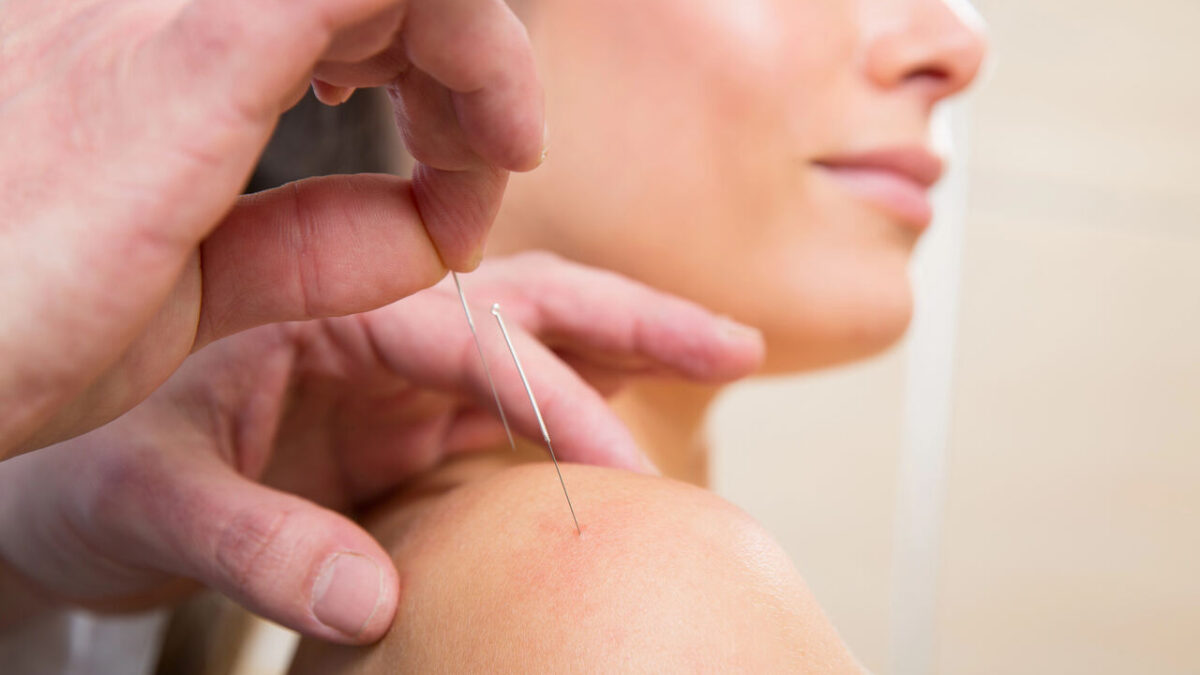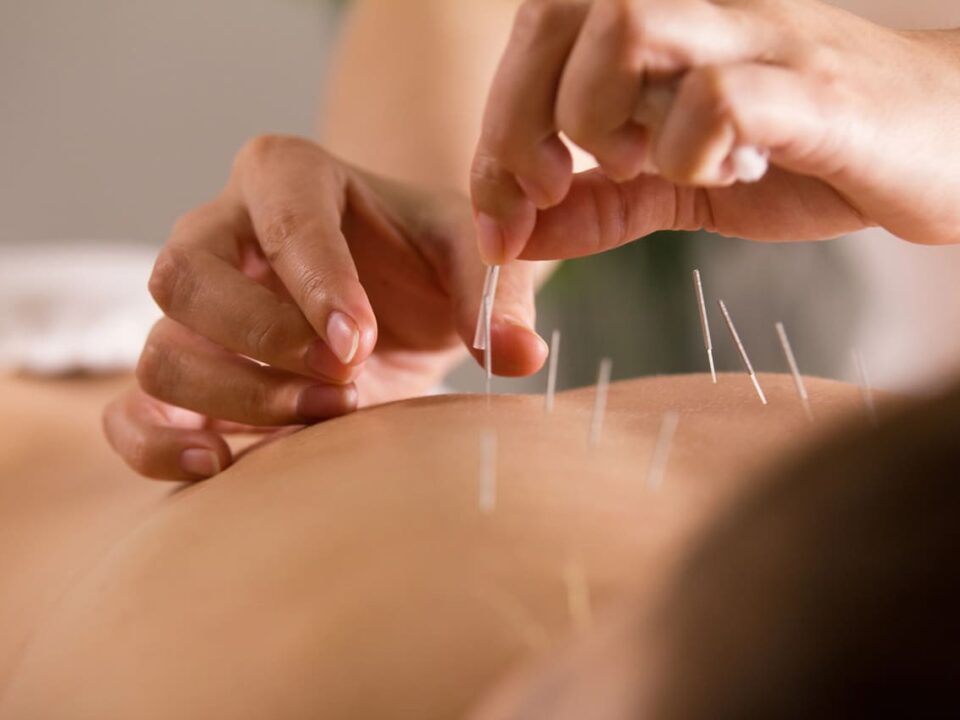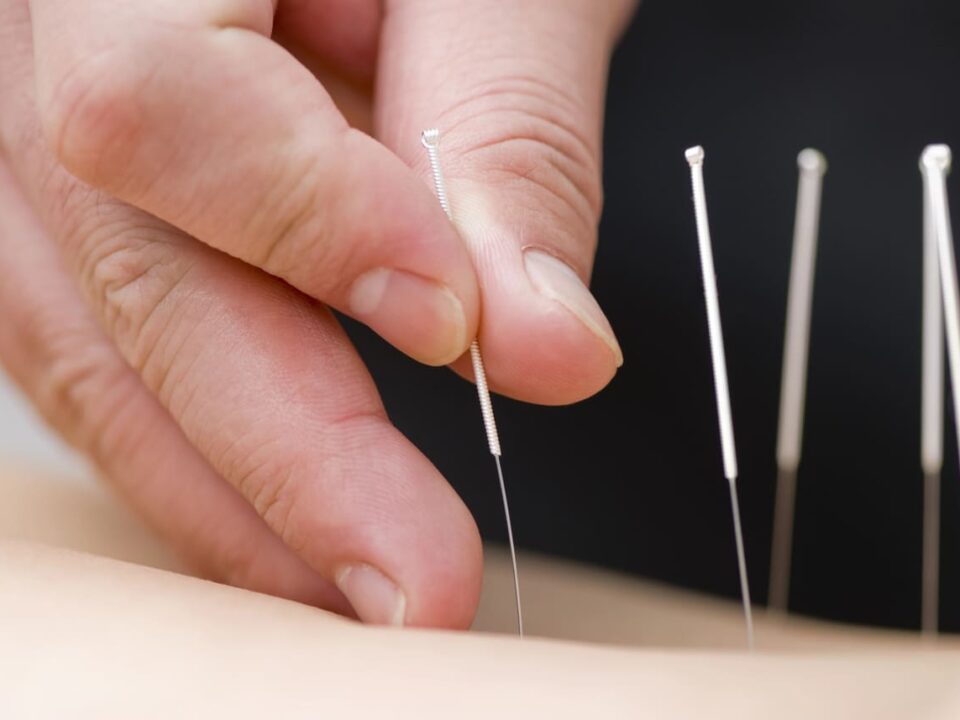
Finding Serenity: Acupuncture for Headaches Made Easy
July 18, 2024
Alleviating Neck Pain with Physiotherapy: What You Need to Know
July 24, 2024Shoulder pain can significantly impact daily life, making simple tasks difficult and reducing overall quality of life. Understanding the causes of shoulder pain and exploring effective treatment options can help individuals find relief and restore functionality. Acupuncture for shoulder pain presents a viable treatment method.
Exploring the Causes of Shoulder Pain
Shoulder pain can result from various conditions, injuries, and underlying issues. Common causes include:
- Rotator Cuff Injuries: Damage to the muscles and tendons that stabilize the shoulder joint can cause pain and limit movement. This can result from overuse, sudden injuries, or degenerative changes.
- Frozen Shoulder (Adhesive Capsulitis): This condition involves stiffness and pain in the shoulder joint, often worsening over time and limiting the range of motion.
- Bursitis: Inflammation of the bursae, small fluid-filled sacs that cushion the shoulder joint, can cause pain, especially with movement.
- Tendinitis: Inflammation of the tendons in the shoulder, often due to repetitive stress or overuse, can lead to significant discomfort.
- Arthritis: Osteoarthritis or rheumatoid arthritis can affect the shoulder joint, causing chronic pain, stiffness, and reduced mobility.
- Shoulder Impingement: When the shoulder blades exert pressure on the underlying soft tissues, it can cause pain and limit movement.
- Dislocation: A dislocated shoulder occurs when the upper arm bone pops out of the shoulder socket, leading to severe pain and instability.
What Is Acupuncture?
Acupuncture is an ancient Chinese medical practice that involves inserting thin, sterile needles into specific points on the body. By stimulating these points, acupuncture aims to promote healing.
Acupuncture is used to treat various health conditions, including pain management, stress relief, and overall well-being. It is performed by trained practitioners who understand the body’s anatomy.
Benefits of Using Acupuncture for Shoulder Pain Relief
Acupuncture offers several benefits for individuals experiencing shoulder pain:
- Pain Reduction: Acupuncture can help alleviate pain by stimulating the body’s natural painkillers, such as endorphins. It can reduce inflammation and relax muscles, providing significant relief from shoulder pain.
- Improved Mobility: By targeting specific points related to the shoulder joint and muscles, acupuncture can improve blood flow and reduce stiffness, enhancing the range of motion and overall shoulder function.
- Holistic Approach: Acupuncture addresses the underlying causes of shoulder pain, not just the symptoms. It promotes overall well-being and can help prevent future issues by restoring balance to the body’s energy flow.
- Minimal Side Effects: Acupuncture is a natural treatment with minimal side effects, making it a safe option for many individuals. Unlike medications, it does not carry the risk of addiction or adverse reactions.
- Complementary Therapy: Acupuncture can be used alongside other treatments, such as physiotherapy and massage, to enhance overall effectiveness and provide comprehensive care.
- Stress Reduction: Acupuncture promotes relaxation and reduces stress, which can contribute to muscle tension and pain. By addressing both physical and emotional aspects, acupuncture supports holistic healing.
Potential Side Effects Associated with Acupuncture
While acupuncture is generally considered safe when performed by a trained practitioner, there are some potential risks and side effects to be aware of.
The most common side effects are mild and temporary. Some individuals may experience slight soreness or bruising at the needle insertion sites, which usually resolves within a few days. Fatigue is another possible side effect; feeling tired after an acupuncture session is not uncommon and can typically be managed by resting and staying hydrated.
Additionally, some people might feel lightheaded or dizzy immediately after treatment. It is important to get up slowly and sit for a moment if you feel unsteady. Although rare, there is a risk of infection if the needles are not properly sterilized. Ensuring that your acupuncturist uses sterile, single-use needles is crucial.
Consulting with a qualified acupuncturist can provide personalized advice and ensure that the treatment is appropriate for your specific condition.
Activities to Avoid When Experiencing Shoulder Pain
When experiencing shoulder pain, certain activities can exacerbate the condition and should be avoided to prevent further injury. These activities include:
- Heavy Lifting: Avoid lifting heavy objects, especially overhead, as this can strain the shoulder muscles and tendons.
- Repetitive Movements: Refrain from activities that involve repetitive shoulder movements, such as certain sports or manual labour tasks.
- Overhead Activities: Activities that require reaching or lifting above the head can put undue stress on the shoulder joint and should be minimized.
- High-Impact Sports: Sports that involve high impact or sudden jerky movements, such as basketball or tennis, can aggravate shoulder pain.
- Poor Posture: Avoid prolonged periods of poor posture, such as slouching or hunching over a desk, as this can contribute to shoulder discomfort.
It is essential to modify your activities to protect your shoulder from further strain and consult with a healthcare provider for personalized recommendations.
Lifestyle Changes That Support Shoulder Pain Treatment
Incorporating certain lifestyle changes can significantly support the treatment and management of shoulder pain. These changes include:
- Regular Exercise: Engage in regular, low-impact exercises such as walking, swimming, or cycling to maintain overall fitness without putting excessive strain on your shoulder.
- Stretching: Incorporate gentle stretching exercises to improve flexibility and reduce tension in the shoulder muscles. Focus on stretches that target the shoulders, neck, and upper back.
- Ergonomic Adjustments: Make ergonomic adjustments to your workspace to ensure proper posture and reduce shoulder strain. Use supportive chairs and position your computer screen at eye level.
- Weight Management: Maintain a healthy weight to reduce the overall load on your joints, including your shoulders. A balanced diet and regular exercise can help achieve and maintain a healthy weight.
- Adequate Rest: Ensure you get sufficient rest and avoid overexerting your shoulder. Listen to your body and give your shoulder time to heal.
- Stress Management: Practice stress-reducing techniques such as mindfulness, meditation, or yoga to prevent muscle tension caused by stress.
By implementing these lifestyle changes, you can enhance the effectiveness of your shoulder pain treatment and promote overall health and well-being.
Start Your Recovery Journey
Acupuncture offers a promising and holistic approach to managing shoulder pain by targeting both symptoms and underlying causes. With its ability to reduce pain, improve mobility, and promote overall well-being, acupuncture can be an effective treatment option for those suffering from shoulder pain.
If you are experiencing shoulder pain and looking for a natural and effective treatment, consider exploring acupuncture at Burnaby Heights Physiotherapy. Our skilled practitioners are dedicated to helping you achieve relief and restore optimal shoulder function. Contact us today to schedule an appointment.






